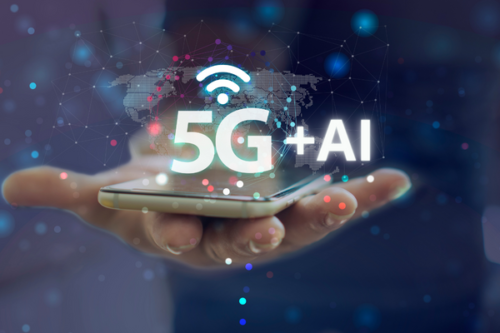Africa is experiencing a rapid digital transformation, with many countries harnessing the power of digital technologies for economic & social growth and digital innovation. Mobile connectivity, telecom, and broadband are the bedrock for this transformation. A report by GSMA – 5G in Africa: Realizing the potential – reveals that mobile technology has a greater reach in Africa than any other technology. With over 1.2 billion connections and over 650 million unique mobile users by the end of 2022.
The popularity of the mobile phone paved the way for the adoption of wireless generation technologies such as 2G, 3G, 4G & 5G. The 5G network, being the latest upgrade, outperforms the functioning of all the previous networks with significantly larger scales: superfast download speeds, high levels of reliability, and extremely low latency, hence its growing popularity. This is evident in the global adoption rate, with nearly 2 billion connections, just under six years from the launch of the first commercial network.
Implementation across Africa
Since Vodacom and MTN launched the first 5G networks in 2020, adoption has grown. As of September 2023, 27 operators in 16 African markets had launched commercial 5G services, with many more expected by 2025. Several African countries have already implemented 5G, while others are still under development.
South Africa launched its 5G network in 2020 under Ericsson, while Kenya’s largest telecommunication company, Safaricom, recently conducted successful 5G trials and launched 5G services in 2021. The company plans to expand its 5G network across the country. The Kenyan government has also included 5G in its National Broadband Strategy. MTN Nigeria and Ericsson were the first to launch 5G services in Nigeria in 2022. Airtel followed closely behind and launched its 5G network in June 2023 in four cities: Lagos, Ogun, Abuja, and Rivers.
Telecom Egypt recently announced a strategic partnership with global tech leader Nokia to introduce 5G data services across Egypt. This collaboration aims to transform the country’s telecommunications landscape by deploying 5G mobile technology in key cities, including Giza, Luxor, Aswan, and Alexandria. Telecom Namibia also plans to begin its 5G trials in 2026. Morocco has also announced its plans to launch 5G under the ‘Maroc digital 2030’ strategy, which aims to modernize the country using digital technologies to stimulate economic growth, improve public services, and ensure broader digital inclusion. Ghana’s Ministry of Communication and Digitization also announced that they will roll out 5G services by the end of 2024.
5G and AI are propagated to revolutionize the continent, unlocking opportunities for economic growth, social development, and technological innovation. As Africa rapidly expands its digital infrastructure, 5G networks and connections are critical for the widespread adoption and application of AI.
5G as a Catalyst for AI Development
5G networks offer several advantages essential for the effective functioning of AI applications. These include enhanced connectivity, massive IoT support, and edge computing. 5G provides considerably higher speeds, lower latency, and greater capacity than previous generations of mobile technology, enabling real-time data transmission and processing.
Additionally, 5G’s ability to connect a vast number of devices simultaneously empowers the deployment of IoT sensors and devices, generating the massive datasets required for AI training and development. According to the GSMA, there were 1.3 billion IoT connections in Sub-Saharan Africa in 2023, which is expected to grow to 3.5 billion by 2028.
Furthermore, 5G networks facilitate edge computing, where data processing and analysis occur closer to the source, reducing latency and improving response times. This is crucial for AI applications that require immediate decision-making, such as autonomous vehicles or real-time healthcare monitoring.
5G infrastructure could be the foundational step African governments and organizations need to leverage AI’s transformative potential fully. According to a GSMA report, AI applications could boost Africa’s economy by nearly $3 trillion over the next six years, particularly in agriculture, climate action, and energy. Robust 5G infrastructure, which offers the high-speed, low-latency connectivity necessary for AI systems to function effectively, could be an enabler for this growth.
Looking Forward
As Africa progresses towards widespread digital transformation, it’s crucial for countries in the early stages of 5G adoption to prioritize infrastructure investments, particularly in underserved regions. Public-private partnerships and transparent regulatory frameworks will be essential for accelerating deployment, ensuring that 5G infrastructure supports AI applications that address local challenges. Fostering collaborative ecosystems among telecom operators, tech companies, and educational institutions can drive innovation and help develop homegrown solutions that meet Africa’s unique needs.
Moreover, digital literacy must be enhanced, and inclusive access to 5G services must be ensured. By upskilling the workforce and making 5G technology affordable, African nations can maximize these advancements’ economic and social benefits. Regional cooperation will further strengthen the continent’s ability to leverage 5G and AI for sustainable growth, helping Africa leapfrog traditional development paths.
However, the successful integration of 5G and AI in Africa doesn’t come without challenges. One significant challenge might be the substantial infrastructure investment required to deploy 5G networks, particularly in rural areas with limited connectivity. According to the GSMA, the total investment needed to build 5G networks in Sub-Saharan Africa is estimated to be $26 billion between 2023 and 2030.
In conclusion, 5G technology and AI present a tremendous opportunity for Africa to leapfrog traditional development paths and achieve sustainable economic growth. By harnessing the power of 5G connectivity, African countries can unlock the full potential of AI to address pressing challenges, improve quality of life, and create a more inclusive and prosperous future.
Categories


